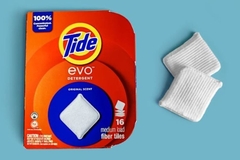June in review: Examining cosmetic safety, supply chain reform, Pride month pitfalls

Last month, we explored the potential harms of personal care products to consumers’ health and calls to update beauty supply chains.
An updated proposal by the European Commission was critiqued for its potential to facilitate the use of carcinogens in cosmetics, and a study found a pesticide in tampons. Meanwhile, Atelier and Accenture suggested beauty brands update their supply chains to save billions.
Personal Care Insights attended Cosmetic Business 2025 in Germany and uncovered emerging industry trends.
June also marked Pride month, but this year revealed fewer Pride beauty campaigns, smaller sponsorships, and quieter marketing than previous years.
Toxic trade-off? EU proposal may ease carcinogen restrictions for cosmetics
The European Commission prepared to present an updated proposal on cosmetics regulation, which was said to facilitate the use of substances classified as carcinogens in beauty formulations. The draft was part of a “simplification” strategy to boost regional competitiveness and regulatory convenience through deregulation. Experts advocated for a hazard-based system, banning chemicals based on dangerous properties, while the draft takes a risk-based approach that allows harmful substances if exposure is considered low enough to be safe.
Dolce & Gabbana eyes “stable and high-profit” beauty market expansion
Dolce & Gabbana secured €150 million (US$171.3 million) in funding to help grow its beauty division. The luxury fashion house said it would use the funds to launch new fragrances, enter the skin care market, and update its makeup line to increase the beauty division’s business. The funds also went toward expanding the company’s real estate projects and refinancing its existing loans, worth €400 million (US$457.2 million).
“Insidious” skin care: Young girls exposed to harmful beauty advice on TikTok
A study has found that tweens and teenage girls who are encouraged to follow beauty advice on TikTok may harm their skin by adopting intensive routines meant for adults. The results showed that girls aged seven to 18 use, on average, six skin care products and have a routine exceeding 10 minutes, using products mainly created for mature skin. A researcher called skin care “insidious” when it claims to be about health.
Cosmetic Business 2025: Natural ingredients and longevity shape new skin care
Longevity has become a buzzword in the personal care industry, with businesses increasingly viewing healthy aging through a holistic lens underscored by natural ingredients and biotechnology. Personal Care Insights spoke to industry experts at Cosmetic Business 2025 about how consumers demand solutions that cater to their specific skin care needs and align with their moral beliefs. Standout trends from the show included customizable and ecological packaging, longevity-based skin care, and cosmetics combining high-quality sensory appeal with sustainability credentials. Vantage debuted its longevity-based skin and hair care solutions at Cosmetic Business 2025.
Vantage debuted its longevity-based skin and hair care solutions at Cosmetic Business 2025.
Fragmented supply chains “paralyze” beauty brands threatening billions in revenue
Atelier and Accenture warned that beauty brands risk forfeiting billions in annual revenue if they do not adapt their “fragmented, linear, and archaic” supply chains. We spoke to three industry experts on how the industry can implement AI-powered and composable manufacturing to meet consumers’ demand for new products.
Disaster to development: Turning invasive algae into sustainable cosmetics
Origin by Ocean turns invasive brown algae, which are currently causing an environmental disaster, into sustainable cosmetic ingredients. The companies announced they were opening a biorefinery in Kokkola, Finland, to address the need for ecological alternatives in the cosmetics industry as it transitions away from fossil-based ingredients. The company’s CEO told us about the potential of Sargassum’s use in beauty products.
Poisonous period products? UK charity detects pesticides in tampons
The Pesticide Action Network UK found a pesticide in tampons at levels 40 times higher than permitted in drinking water. The report evaluated the menstrual products for the presence of aminomethylphosphonic acid, one of the primary degradation products of glyphosate. Researchers found that one box contained glyphosate, which the WHO classifies as a “probable carcinogen.” We spoke to the Pesticide Collaboration about how most people are unaware of their exposure to harmful chemicals.
Sustainable sourcing: Industry partners for humanization of women in shea supply chains
The Global Shea Alliance (GSA), EOS Products, and non-profit Water for West Africa have partnered to empower female shea processors in Northern Ghana and Côte d’Ivoire. The program is designed to strengthen the capacity of 12,000 women in shea kernel and butter processing by enhancing product quality, creating jobs, and enabling greater private sector investment in women-led cooperatives. We spoke to GSA about how the personal care industry needs to make greater strides in supporting these women.  Quadpack told us about its Dropify Bottle for dispensing small amounts of beauty products.
Quadpack told us about its Dropify Bottle for dispensing small amounts of beauty products.
Pride Month 2025: Beauty campaign drop-off sparks authenticity debate
Beauty and personal care brands visibly scaled down their Pride Month involvement this year. Innova Market Insights’ reporting revealed that major Pride events in cities like New York and San Francisco, US, experienced funding shortfalls. We spoke with Nic Allum, creative and consultation director at Do the WeRQ, about how the political rollback of federal Diversity, Equity, and Inclusion policies under US President Donald Trump triggered a corporate retreat.
US sunscreen reform: New bill targets accelerated product innovation
US lawmakers have introduced a bill to reform how the FDA evaluates and approves over-the-counter sun protection. In the US, sunscreens are an FDA-regulated drug product, meaning they must meet standards related to the safety and effectiveness of this categorization. The SAFE Sunscreen Standards Act aims to modernize the FDA’s sunscreen ingredient review process. Personal Care Insights dove into how the SAFE Sunscreen Standards Act would increase the availability of sunscreen options in the US to align with global standards.













